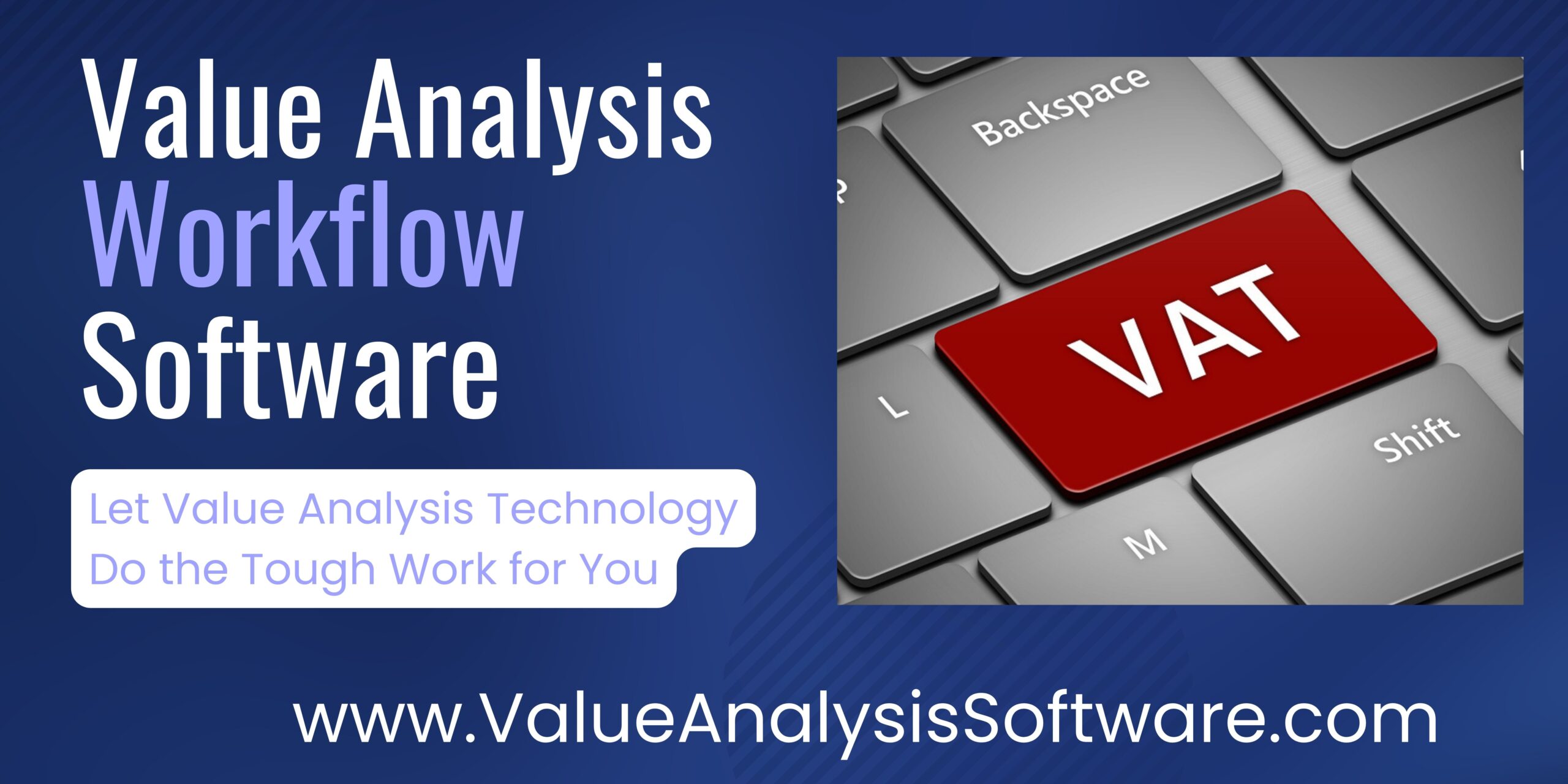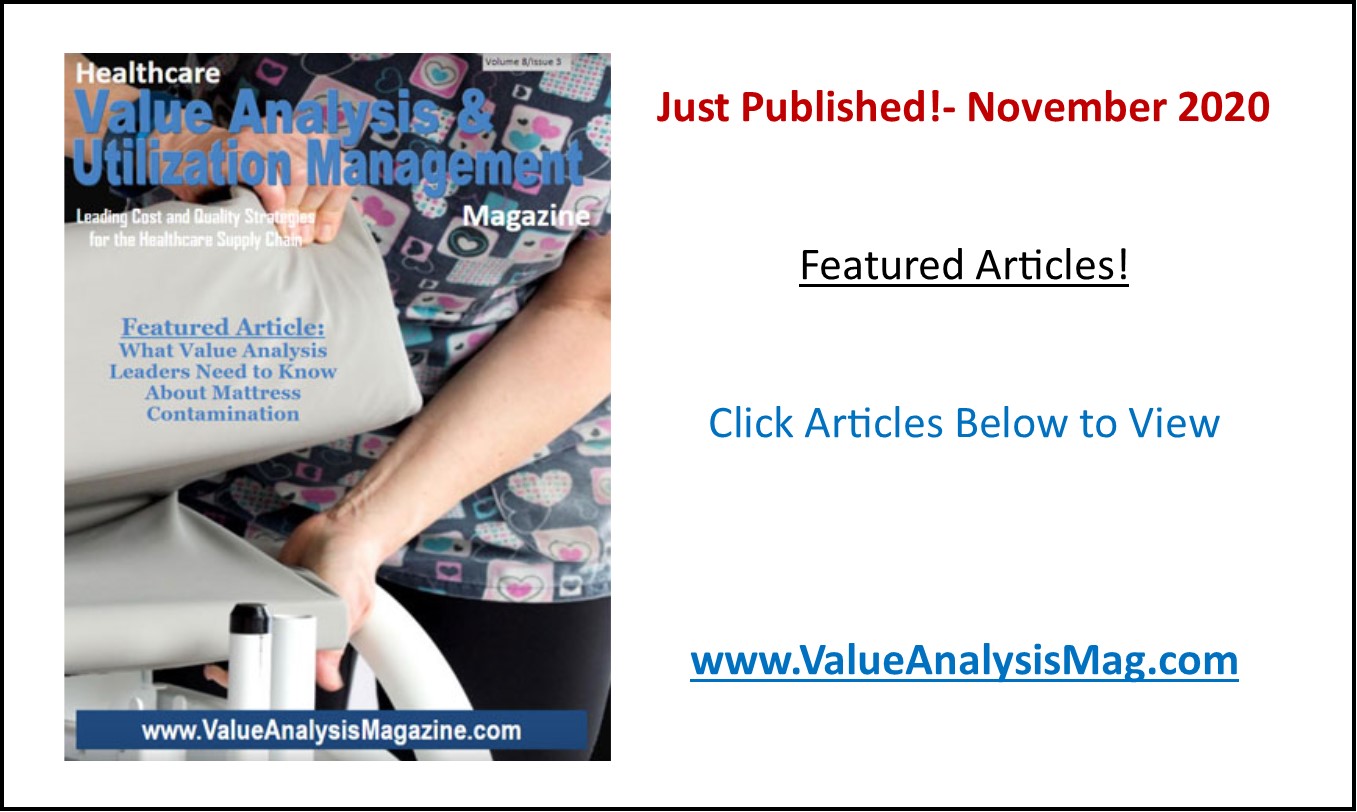By Robert W. Yokl, Sr. VP, Operations – SVAH Solutions
For most healthcare supply chain organizations, value analysis has become mission critical to the success of savings and quality improvement goals. The concept of value analysis appears simple and straightforward with lofty savings goals attached to it by most organizations. To accomplish these new goals for your organization you need new and advanced skills, systems, processes, and hard work to achieve great things in the job of value analysis. I thought it would be time to start writing about what you need to have in your tool/skill sets that will make you successful in the short and long-term.
- VA Project Management – The value analysis world is filled with multitudes of VA studies, initiatives, and conversions. You must be ready to handle all the product, service, technology and process studies on an ongoing basis. You are the quarterback and you need to move all these projects through to completion with positive results in all cases if possible. The only way to manage this is to use specific value analysis project management along with a strong study process to make this happen.
- Embrace Advanced Analytics – It is a given that you must be an expert with a spreadsheet but that is only a small part of the reporting and analysis picture. You must start to embrace the world of relational databases that are the backbone of all advanced analytics platforms and reporting tools. Once you understand and use the database tools you will learn how you can make your best analysis automatic and repeatable with less work and better results every time.
- Maintain a Solid Value Analysis Process – We are not talking about the process where a new product request is filled out, then sent to the VA Coordinator and then the VA Committee; that is more of workflow. What we are talking about is the value analysis approach that is used for studies based on functional analysis. This is the process that will streamline and guide all your studies and help you get a better understanding of any and all products, services, technologies and processes without being a subject matter expert.
- Master Benchmarking – Most people do not like being compared to anyone else and told that they could do better in this area or that, but there is no better tool or skill set that will let you know exactly where you stand or where you should be. That skill is benchmarking or the search for the best practice with apples to apples comparisons in functional characteristics. Remember, there are so many different types of benchmarks that you can benefit from – historical, cohort, system-wide, pricing, utilization, etc.
- Leadership & Facilitation – You will be responsible for not only facilitating the value analysis teams but also interacting with the individual leadership councils and committees in the hospital/health system. You need to have solid leadership skills to keep your projects and your team moving forward in a positive manner.
- Good Interview Skills – You are not just walking products through a VA Team or Committee, but you are dealing with highly technical and extremely busy professionals such as physicians, clinicians, and other hospital technicians/professionals who are experts in their disciplines. The information you need is with them, your subject matter experts and product users, and you need to be able to ask good questions in order to bring out the exact functional requirements for your VA studies.
- Coach and Trainer – Just because the term value analysis has been around the healthcare world for over 35 years, you cannot assume that everyone knows exactly what you do, what a team does, or what outcomes are produced. Plus, there are always new team members, leaders, and support personnel that must be updated to how you do business with value analysis. The moment you stop educating your leaders, team members, and department heads and managers, you are inevitably going to be dealing with 15 to 30 different meanings of value analysis instead of the true meaning that you teach and know.
- C-Suite Manager – If the CEO, CMO, CFO, CNO and COO are behind your program and always fully understand what you are doing, then more than likely you will have great successes. On the other hand, if they are not behind your program and they feel that value analysis is undermining something else that they want to champion then you will become a sideshow to other initiatives in your organization. Your job is always to keep the C-Suite informed and encouraged about your progress throughout the year. Let them know your results and enlist their thoughts when you can on policy and challenges.
- Lip Service Sifter — With the role of change agent comes dealing with the inevitable, “We don’t want to change so I am going to talk you away/out from my area.” This can be at any level of your healthcare organization and you should expect it to happen on just about every study, contract conversion, or standardization initiative. Make sure your data, reporting, and analysis is spot on so to avoid getting shot down from clever customers, stakeholders, and experts in your organization. Try to punch holes in your own analysis first to avoid getting lip service.
After reading my preceding list of value analysis skills, you realize how dynamic the job of healthcare value analysis is. Not only do you need to learn and embrace all of these areas, but you must have tools and systems to help you through them each and every day. The alternative is a long, tough road through value analysis when it does not have to be. Sometimes, you do need to go up the elevator instead of taking the stairs every time.





